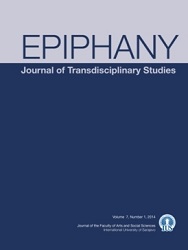Turkish Foreign Policy towards the Arab Revolutions
Turkish Foreign Policy towards the Arab Revolutions
Author(s): Mehmet Özkan, Hasan KorkutSubject(s): Civil Society, International relations/trade, Geopolitics, Peace and Conflict Studies
Published by: International University of Sarajevo
Keywords: Turkish Foreign Policy; Arab Spring; Turkish Model; The Middle East; Diplomacy and New Regional Order;
Summary/Abstract: Turkey‘s foreign policy has been drawing considerable attention particularly because of the momentous transformations in the Middle East. The visits of Turkish Prime Minister Recep Tayyip Erdogan and Foreign Minister Ahmet Davuoglu to Egypt, Libya, and Tunisia in September 2011 and their subsequent visits to the region underscored the rise of Turkey‘s involvement in the region. The Arab Spring came at a time when Turkey‘s relations with the United States, Israel and the European Union were going through significant turbulence. 2010 proved to be a particularly difficult year for Turkey‘s place in the transatlantic community. The Gaza flotilla crisis in June 2010 — ending with Israeli forces killing eight Turkish citizens — and Turkey‘s ―no vote to a new round of sanctions against Iran at the United Nations (UN) Security Council that same month triggered a heated debate on Turkey‘s relations with the West, which led popular American columnists such as Tom Friedman to go as far as arguing that Ankara was now joining the ―Hamas- Hezbollah-Iran resistance front against Israel. While this was a clear exaggeration, it indicated the scope of debate on the eve of the Arab Spring. Since the Arab Spring, the Western discourse about Turkey has dramatically changed. Instead of asking ―who lost Turkey or complaining about the Islamization of Turkish foreign policy, analysts began discussing whether the new regimes in the Arab world would follow the ―Turkish model. This article aims to analyze the Turkish approach to the Middle East and the Arab revolutions, the main determinants of Turkish foreign policy and diplomacy in the Middle East and the debate on ―Turkish Model. What has changed, or has not, during and after the Arab Spring?
Journal: Epiphany. Journal of Transdisciplinary Studies
- Issue Year: 6/2013
- Issue No: 1
- Page Range: 162-181
- Page Count: 20
- Language: English

